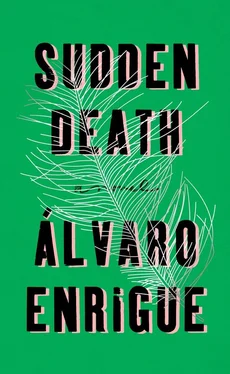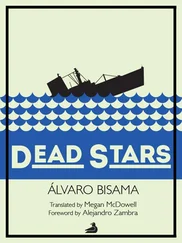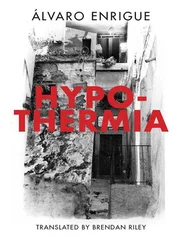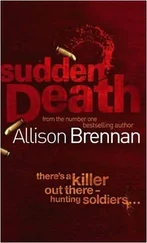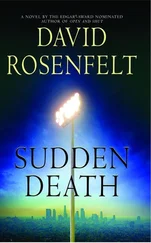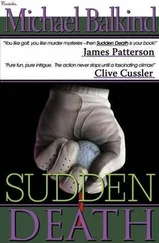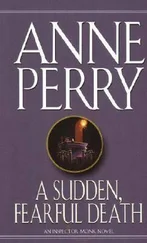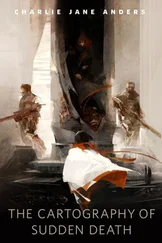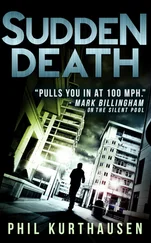Wiping the beads of sweat from his forehead, he rolled the ball again in the fingers of his left hand. It was a strange ball: very worn and much handled, a little smaller than usual, solid in a way that was recognizably French; it had a more hectic bounce than the balls filled with air that he was used to playing with in Spain. He glanced down and with his toe scraped the stripe of lime that marked the end of his side of the court. He would come down on his short leg just behind the line: this was the surprise factor that made him invincible with a sword, and perhaps — why not? — with a racket too.
He heard laughter from his opponent, who was waiting for the serve on the other side of the cord strung between them. One of the degenerates accompanying him had muttered something in Italian. At least one of them was familiar: a man with a jutting nose, red beard, and sad eyes — the model for the tax-collector saint in The Calling of Saint Matthew , proud recent acquisition of the church of San Luigi dei Francesi. Tossing the ball in the air, he shouted Tenez! and felt the catgut strings tighten as he lit into it with all his soul.
His opponent’s eyes followed the ball as it flew toward the gallery roof. It struck at one of the corners. The Spaniard smiled: his first serve was lethal, untouchable. The Lombard had rested too easy, so sure was he that a lame man could be no match for him. In the quick, shrill voice with which Castilians pierce walls and minds, the poet remarked: Better a cripple than a bugger. On the other side of the court, no one laughed at his joke. But from his spot in the roofed gallery, the duke watched with the sly smile of a great rake.
In time, the duke, the poet’s linesman, would become the Spanish statesman his title gave him the right to be, but by the autumn of 1599 he had done nothing but punish his body, sully the family name, worry his wife sick, and drive the king’s counselors to distraction. He was a stout, brash man. He had a round face, an almost comically pointy nose, grapefruit-seed eyes that gave him a mocking aspect even when he was in earnest, short curly hair, and an unconvincing beard that made him look more of a fool than he was. He was watching the match in the same scornful, sardonic way he did everything, sitting in the arcade under the wooden roof on which the ball had to bounce for a serve to be considered good.
The Lombard took the center of the court behind the baseline. He waited in a crouch for the bounce of the Spaniard’s serve. The gang of layabouts with him preserved a respectful silence this time. The poet served again, and again he won the point. He had put the ball almost on his own side of the roof, so that it fell nearly dead for his opponent. The duke called out the score: Thirty — love, though what he said was “lof.” The Italians understood perfectly.
Gaining confidence, the Spaniard dried the palm of his right hand on his breeches. He turned the ball in his left. He was sweating enough to give it backspin without needing to spit on it. It wasn’t the heat but the fever that afflicts those who have yet to recover from too much drink, landing them in a purgatory of shivers. He rolled his head from side to side, closed his eyes, and wiped his mouth with his sleeve. He squeezed the ball. It wasn’t a normal ball; there was something irregular about it, as if it were more talisman than ball. This, it occurred to him, was why his serves were unstoppable. When he took his turn on the receiving side and the ball returned to the hands of its owner, he would have to take heed.
He gripped the racket and tossed the ball into the air. Tenez! He hit it so hard that for the fraction of a second before his lame leg came down again, the earth seemed to turn more slowly. The ball bounced capriciously on the roof of the gallery. The Lombard stretched for it. The Spaniard tried to kill the return dead but didn’t manage it. The point continued: luckily for him, the ball struck one of the posts, and he was able to snag it on the bounce, driving it to the back of the court. It was a good save, but the maneuver took too long, and surprise was the only option he had for countering his opponent’s experience on the court. The Lombard found it simple to fling himself backward and hit a drive that the poet had no chance of returning.
Thirty — fifteen, cried the duke. The only responsible member of the Lombard’s entourage was his linesman — a silent and prematurely aged professor of mathematics. He walked onto the court to mark a chalk cross on the spot where the ball had bounced. Before he made the mark he turned to look at the Spaniard’s second. The duke shrugged in a show of indifference, agreeing that the cross was well-placed.
The poet didn’t return immediately to position. While the professor took his time with the marking, he went over to the gallery. He’s good, the duke said when the poet was near; you couldn’t hit a ball like that on your best day. The poet filled his cheeks with air and blew it out with a snort. I can’t lose, he said. You can’t lose, confirmed the duke.
The next point was long and hard-fought. The Spaniard had his back to the wall, returning balls as if besieged by an army. Move in, move in, the duke cried every so often, but each time the poet managed to advance a little, his attacker pushed him back. At a desperate moment, he had to curb a drive by turning his back on his opponent — a showy play, but not very practical. The Lombard got to the ball close in and drilled the wall again. The ball struck very near the dedans — if it had gone in, the artist would automatically have won the game. Thirty all, cried the duke. Parità, the professor confirmed. The poet hit a serve that struck the edge of the gallery. Inside and unreachable. Forty — thirty, cried the duke. The mathematician nodded serenely.
The next point was contested with more cunning than strength: the poet didn’t let himself be trapped, and he was finally able to force the artist to play a corner. On the first short ball he eliminated him. Game, called the duke. Caccia per Spagna, called the professor.

Tennis.Game of a likeness to handball. One player defends and the other attacks, then vice versa. If there is a tie, a chase will decide the defender and the attacker in the third round, which is called sudden death. On the serve, the ball must strike a slant roof along one side of the court, from which it drops and is returned. Tennis is also called pala , after the racket with which the game is played, which is made entirely of wood with a little net of tight-strung gut in the center. It is gripped by the handle and with it the ball is struck with violence and force. Tennis is scored by points, but he who hits the dedans wins a round and he who wins three straight rounds or four rounds divided wins the match.
Diccionario de autoridades , Madrid, 1726

Jean Rombaud had the worst of all possible tasks on the morning of May 19, 1536: severing with a single blow the head of Anne Boleyn, Marquess of Pembroke and Queen of England, a young woman so beautiful she had turned the Strait of Dover into a veritable Atlantic. The notorious Thomas Cromwell, chief minister to Henry VIII, had brought Rombaud over from France for this express purpose. In a curt missive, Cromwell asked that he bring his sword — a piece of miraculously fine craftsmanship, forged of Toledo steel — because he would be performing a delicate execution.
Читать дальше
